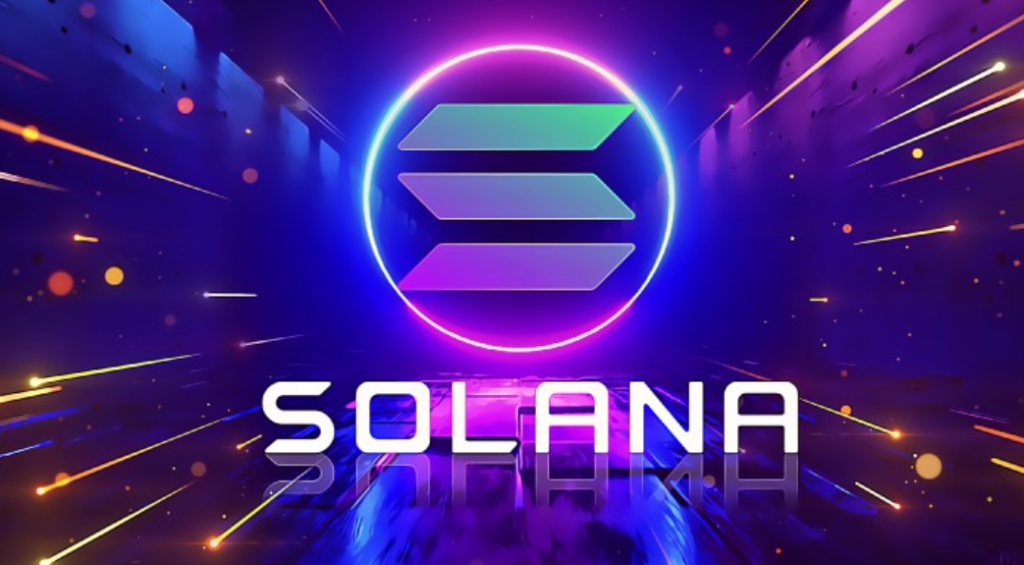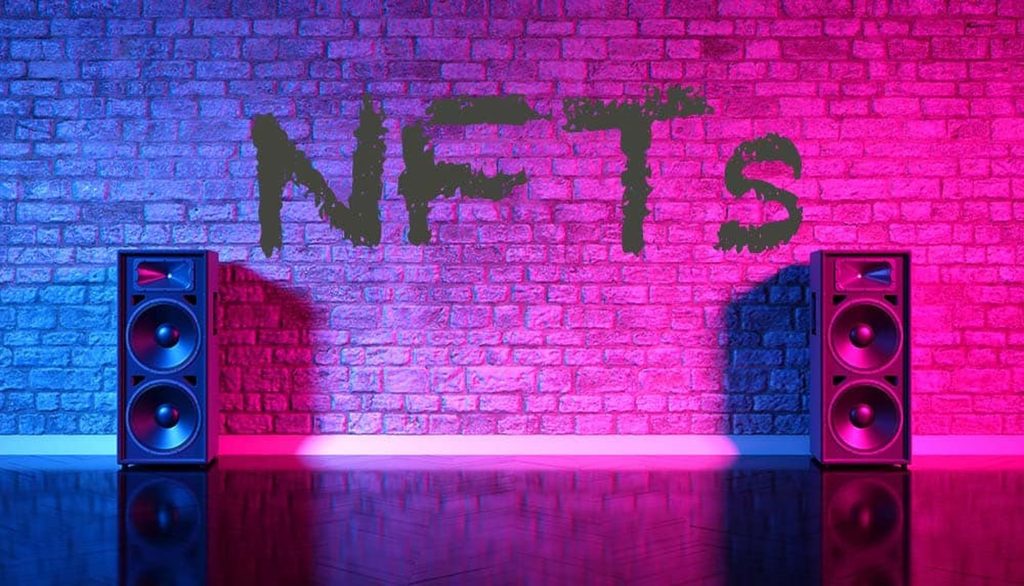Marathon Digital has embarked on a groundbreaking initiative to mine Bitcoin using eco-friendly power generated from methane gas harvested from a landfill site.
This off-grid pilot project, boasting a 280-kilowatt (kW) capacity, is currently operational in the state of Utah.
Collaborating closely with Nodal Power, a company established in November 2022, Marathon has taken the lead in harnessing energy from landfill gas across the southeastern United States and Texas.
Notably, Nodal Power successfully secured $13 million in funding during an August seed round to manage two prominent sites, one of which houses a cutting-edge data center.
Marathon’s visionary mission extends beyond this pioneering project, as the company aims to validate its ability to capture methane emissions from landfills, convert these emissions into electricity, and subsequently employ this electricity to power Bitcoin mining operations.
Marathon’s CEO, Fred Thiel, expressed his optimism regarding the venture, stating, “Should the results of the pilot project meet our expectations, we look forward to expanding our footprint in this area and helping landfill operators and others meet their environmental targets.”
This endeavor aligns with a growing trend in the Bitcoin mining industry, where green energy solutions are highly sought after.
READ MORE: Turkey Takes Aim at Crypto Regulation to Escape FATF Grey List
For instance, Genesis Digital Assets Limited established an 8-megawatt facility in Sweden in August that relies on hydropower, further highlighting the industry’s commitment to sustainability.
Marathon’s commitment to sustainability doesn’t stop at landfill projects. In late October, the company inaugurated a state-of-the-art 200-MW immersion-cooled facility in Masdar City, Abu Dhabi, a model of sustainable living.
Additionally, a report released by Marathon in the same month emphasized the practicality and advantages of crypto mining at landfill sites, not only for miners and landfill owners but also for the environment.
This initiative gains significant importance considering that methane emissions, as per the United Nations, have a far more detrimental impact on the environment than carbon dioxide emissions.
Despite reporting second-quarter earnings that fell short of expectations, Marathon achieved a milestone by mining a record 2,926 Bitcoins in the same period.
Their Q2 revenue also surged, with a year-on-year increase of 228% to reach $132.8 million.
Marathon Digital’s commitment to sustainable and environmentally conscious Bitcoin mining marks a promising step towards a greener and more responsible future for the cryptocurrency industry.
In 2022, the cryptocurrency world experienced a seismic event when FTX, a prominent exchange, suffered a catastrophic collapse, sending shockwaves throughout the industry.
Among those hit hardest by this turmoil was the Solana ecosystem, a layer-1 smart contract blockchain protocol.
Anatoly Yakovenko, the co-founder and CEO of Solana, shared his concerns during an exclusive interview with Cointelegraph at the Solana Breakpoint conference in Amsterdam.
Yakovenko expressed his worries about the numerous projects that had been building on Solana.
The aftermath of FTX’s bankruptcy saw Solana’s native token, SOL, plummet in value from $36 in early November 2022 to as low as $12 in the days following the exchange’s collapse.
Solana’s leadership and investors took immediate action, reaching out to hundreds of teams working on products, services, and decentralized applications within the ecosystem to assess the extent of the damage.
Approximately 20% of Solana-based projects had received investments from FTX or Alameda Research, and just 5% of ecosystem startups had funds tied up in the now-defunct exchange.
This loss of funding severely impacted many startups’ ability to continue their work, causing their runway to evaporate.
READ MORE: Turkey Takes Aim at Crypto Regulation to Escape FATF Grey List
One notable case was Armani Ferrante, who had secured around $20 million to develop Coral, a Solana-based cryptocurrency infrastructure company.
Ferrante estimated a loss of approximately $14.5 million due to the FTX collapse.
Despite such setbacks, founders like Ferrante displayed resilience, using the failure as motivation to rebuild their companies from the ground up.
While SOL’s price drop was distressing, Yakovenko emphasized that the real tragedy was the harm done to ecosystem projects.
He expressed relief that the majority of teams managed to survive despite the challenging circumstances.
As the one-year anniversary of FTX’s collapse approaches, some positive developments have emerged.
Sam Bankman-Fried, the former CEO of FTX, faced a high-profile criminal trial and was found guilty on all seven charges on November 3, with sentencing scheduled for March 2024.
There is a silver lining for the Solana ecosystem, as investors have recognized that FTX’s influence had hindered the growth of the new generation smart contract layer 1.
Ethereum venture capital investor Chris Burniske played a crucial role in highlighting the value proposition of Solana, encouraging people to explore the platform as a viable alternative.
This influence has contributed significantly to the ecosystem’s recovery and resurgence, demonstrating its resilience in the face of adversity.
MicroStrategy, a prominent business intelligence firm, has witnessed a remarkable paper gain of $900 million on its substantial holding of 158,400 Bitcoins.
This significant surge in value has been primarily driven by the growing optimism surrounding the potential approval of spot Bitcoin exchange-traded funds (ETFs).
The company, founded by Michael Saylor, has continued to bolster its Bitcoin reserves, acquiring an additional 6,067 BTC since the third quarter, including a substantial purchase of 155 Bitcoins in October, as outlined in MicroStrategy’s November 1st financial report.
CEO Phong Le expressed the company’s unwavering commitment to its Bitcoin strategy, emphasizing that they have no plans to deviate from this path, especially with the promising prospect of increased institutional adoption on the horizon.
Despite a 3% year-on-year increase in revenue, reaching $129.5 million in the last quarter, MicroStrategy found itself in the red, reporting a net loss of $143.4 million.
This outcome highlights the company’s strong focus on accumulating and holding Bitcoin as a core part of its financial strategy.
During the third quarter (July 1 to Sept. 30), Bitcoin experienced a temporary dip, falling by 11.5% from $30,480 to $26,970.
READ MORE: Terraform Labs Co-Founder Do Kwon Challenges SEC Lawsuit
MicroStrategy seized this opportunity to increase its Bitcoin holdings by purchasing 6,067 BTC at an average price of $27,590.
In addition to their Bitcoin investments, MicroStrategy is also confident in the positioning of their artificial intelligence-integrated business analytics products.
Their software licenses and subscription services demonstrated impressive growth, rising by 16% and 28% year-over-year, respectively.
Phong Le expressed his belief in MicroStrategy’s ability to benefit from both the positive trends in the Bitcoin market and the expansion of their business intelligence (BI) offerings, stating,
“We believe MicroStrategy is well situated to capitalize on both the tailwinds in Bitcoin and growth in our BI business.”
Following the release of these financial results, MicroStrategy’s stock price (MSTR) surged by 2.7% in after-hours trading, reaching $438 according to Google Finance.
This upward movement underscores the market’s approval of the company’s strategic direction and its bullish stance on Bitcoin.
Bastion, a recently established cryptocurrency startup founded by former executives from Andreessen Horowitz (a16z), has achieved a significant milestone by obtaining two Money Transmitter Licenses (MTL) within the United States.
On October 31, Bastion proudly announced that it had successfully secured MTLs in New Hampshire and Arkansas, marking the first licenses the company has acquired.
These licenses, officially granted by the New Hampshire Banking Department and Arkansas Securities Department, empower Bastion to provide services related to fungible digital assets within these states.
The firm also revealed that it has pending applications for MTLs in various other U.S. states, indicating its intention to expand its operations nationwide.
With these licenses in hand, Bastion gains the ability to engage in activities such as the sale or issuance of payment instruments, stored value, prepaid access, and the receipt of money and digital currency to facilitate transactions with individuals and businesses in New Hampshire and Arkansas.
You can find further details about these licenses on the Nationwide Multistate Licensing System (NMLS) official website.
READ MORE: El Salvador Poised to Emerge as the Singapore of the Americas
This accomplishment comes a mere month after Bastion’s initial launch in September 2023, underscoring the company’s dedication to providing U.S. businesses with compliant exposure to digital assets like Bitcoin.
Bastion’s genesis can be attributed to two former a16z crypto division executives, Nassim Eddequiouaq and Riyaz Faizullabhoy, who embarked on a mission to integrate Web3 infrastructure with their existing enterprise technologies.
The company’s launch coincided with a successful $25 million seed funding round, spearheaded by a16z crypto.
Co-founder Nassim Eddequiouaq expressed his enthusiasm, stating, “The acquisition of MTLs in New Hampshire and Arkansas is a consequential step in realizing our long-term vision.”
He emphasized that this achievement is a testament to Bastion’s strength and rapid progress, and he looks forward to further expanding the company’s operational footprint.
By securing these MTLs, Bastion joins a growing list of cryptocurrency-related firms that have obtained such licenses, including Alchemy Pay, Coinbase, Block (formerly Jack Dorsey’s Square), MoonPay, and the bitFlyer exchange.
Additionally, in July 2023, Elon Musk’s payment subsidiary, X (formerly known as Twitter), reportedly received its first MTLs in Michigan, New Hampshire, and Missouri.
The CEO and founder of Mintable, Zach Burks, has raised concerns about the United Kingdom’s approach to regulating nonfungible tokens (NFTs).
In a recent interview with Cointelegraph, Burks expressed his belief that a recent report from a U.K. parliamentary committee exaggerates the role of NFTs in copyright infringement and fails to recognize their broader potential beyond volatile digital images.
Burks highlighted the transition phase that NFTs are currently undergoing, shifting away from the speculative craze of profile picture NFTs (PFPs) towards more practical applications by brands across various domains.
He argued that NFT platforms should prioritize copyright protections and intellectual property rights for artists, much like Mintable’s own IP protection algorithm.
However, he emphasized that these issues are not unique to NFTs and are prevalent across the broader internet landscape.
He pointed out that established internet giants like Google have grappled with combating copyrighted material on platforms like YouTube, despite their vast resources.
Burks, who regularly communicates with U.K. government officials about NFTs, urged regulators to adopt a more nuanced perspective on NFTs and recognize their diverse applications beyond artwork and finance.
READ MORE: 3 Best Cloud Mining Platforms 2023 (Earn Money at Home)
In his view, NFTs represent a versatile technology that can be used for various purposes, including managing car records, property records, bank settlement documents, supply chain systems, and more.
He likened NFTs to websites, subject to the relevant laws based on their specific use cases.
Burks criticized the U.K. committee’s suggestion to implement the EU 17 copyright directive for NFTs, emphasizing that such a broad regulatory umbrella might not suit the multifaceted nature of NFT technology.
He cautioned against applying overarching regulatory frameworks that do not consider the unique characteristics of each NFT use case.
Instead, Burks advocated for an approach similar to Singapore, where regulators assess NFTs based on their specific functions and purposes. This approach allows for tailored regulation, treating NFTs as either securities or illicit goods depending on their actual use cases.
In conclusion, Burks urged the U.K. government to adopt a more flexible and case-specific approach to NFT regulation, acknowledging the technology’s potential beyond digital art and the importance of protecting intellectual property rights while avoiding overly broad regulations.
Thailand’s prominent financial institution, Kasikornbank, commonly known as KBank, is venturing into the cryptocurrency sector through its acquisition of a significant stake in the local crypto exchange, Satang.
This strategic move involves the purchase of 97% of shares in Satang’s operator, as revealed in an official announcement posted on the Stock Exchange of Thailand (SET) website on October 30th.
Kasikornbank has valued the acquisition at 3.7 billion Thai baht, equivalent to $103 million.
This transaction is being executed through KBank’s recently established subsidiary, Unita Capital, which specializes in investments within the digital asset industry.
Upon completion of the acquisition, Satang Corporation will undergo a rebranding and be known as Orbix Trade Company Limited.
Kasikornbank’s foray into the crypto domain will comprise three key divisions: Orbix Custodian, a secure custody platform; Orbix Invest, a venture arm; and Orbix Technology, dedicated to blockchain technology development.
READ MORE: SOL Token Surges Above $32 as VanEck Predicts Stellar Future for Solana
Satang holds a prominent position in Thailand’s cryptocurrency landscape, offering services such as a cryptocurrency exchange and other digital asset-related solutions.
The founder of Satang, Poramin Insom, is renowned for launching Firo (formerly Zcoin), a cryptocurrency focused on privacy.
Poramin Insom confirmed the acquisition by Kasikornbank on October 30th via Facebook, expressing his continued commitment to the company and its future.
He also revealed that Satang operates other businesses, including Satang Technology, a blockchain service platform, and Satang Space, a space-related enterprise.
This development follows closely on the heels of KBank’s September 2023 launch of a $100 million fund aimed at investments in Web3, fintech, and artificial intelligence.
KBank stands as Thailand’s second-largest lender by assets, trailing only behind Bangkok Bank.
According to data from the SET, the largest shareholder of KBank is Thai NVDR Company Limited, with the Stock Exchange of Thailand owning a substantial 99.9% of NVDR’s shares.
Kasikornbank’s entry into the cryptocurrency sector through the acquisition of Satang signifies a significant step in the evolution of the financial landscape in Thailand, bridging the traditional banking sector with the rapidly expanding digital asset market.
Ripple CEO Brad Garlinghouse has voiced strong criticism of former U.S. Securities and Exchange Commission (SEC) Chair Jay Clayton’s recent statements concerning the agency’s regulatory approach.
The SEC has been actively pursuing regulatory actions against crypto exchanges and companies since the beginning of 2023.
In an interview with CNBC on June 29, 2023, Jay Clayton expressed his belief that the SEC should only take legal action against specific companies when there are solid legal grounds to do so.
He emphasized the importance of regulatory agencies introducing regulations and pursuing legal cases that they are confident will successfully withstand judicial scrutiny.
Brad Garlinghouse seized the opportunity to remind everyone that it was Jay Clayton who had initiated a lawsuit against Ripple, himself, and Ripple co-founder Christian Larsen in December 2020.
The SEC’s lawsuit alleged that the company and its two executives had engaged in an “unregistered, ongoing digital asset securities offering,” having raised over $1.3 billion through the sale of XRP tokens.
Garlinghouse pointed out that Clayton had brought the case against them and then abruptly left his position the very next day.
READ MORE: Sam Bankman-Fried Denies Wrongdoing But Acknowledges His Mistakes
Clayton’s remarks from June 2023 have drawn significant attention, especially in light of the recent developments in the lawsuit involving Garlinghouse and Larsen.
As previously reported, the SEC made a move to dismiss the charges against the two executives in October.
This decision by the SEC follows a significant ruling by Judge Analisa Torres in July.
The ruling partially favored Ripple, declaring that the retail sales of XRP tokens did not meet the legal definition of a security.
However, the court did find Ripple in violation of securities laws for directly selling XRP tokens to institutional investors.
In essence, Garlinghouse’s criticism underscores the ongoing tension between crypto companies and regulatory bodies like the SEC.
The case against Ripple has been a focal point of this tension, with key figures like Clayton at the center of the controversy.
As the crypto industry continues to evolve, these regulatory challenges will likely remain a subject of intense debate and legal scrutiny.
Bitcoin saw a steady performance on October 27th, with its price hovering around $34,000 during the Wall Street open.
Investors’ attention had shifted towards assessing Bitcoin’s performance against macroeconomic assets.
As the weekly and monthly closing dates approached, BTC/USD maintained its stability, safeguarding the gains it had made earlier in the week.
Traders like Daan Crypto Trades predicted that Bitcoin would likely remain within the range of $33,000 to $35,000 for some time, emphasizing the importance of monitoring potential price sweeps within this range for quick trading opportunities.
Daan also highlighted that open interest (OI) had recovered to levels seen before the recent surge that propelled Bitcoin to its 17-month high.
Historically, elevated open interest levels had often preceded significant price moves, creating what experts referred to as “squeezes.”
READ MORE: 5 Best Trading Platforms for Day Trading of October 2023
On the other hand, Material Indicators, an on-chain monitoring resource, identified a downside signal in one of its proprietary trading indicators.
With two consecutive daily bearish signals, Material Indicators suggested that only a rise to $34,850 would invalidate the bearish implication.
However, the report acknowledged that this move might still occur before the monthly candle close.
Some traders took a more optimistic stance, looking at Bitcoin’s performance relative to macroeconomic factors.
Social media trader Kaleo pointed out that Bitcoin had significantly outperformed the S&P 500 since September, indicating the potential for further price increases.
He noted that BTC had risen by 36% against the USD while increasing by 48% compared to the S&P 500.
Kaleo presented a chart illustrating the BTC/USD performance against the S&P 500, emphasizing that there was still room for Bitcoin to move higher, possibly reaching $40,000.
Others focused on the significance of recent resistance levels, which were on the verge of transforming into weekly and monthly support.
Crypto and macro analyst Matthew Hyland argued that breaking through the $32,000 resistance level was a noteworthy achievement.
He suggested that bears had limited options left, and their last hope was for Bitcoin to close below this level on a weekly and monthly basis.
Ripple CEO Brad Garlinghouse has taken a firm stance against the former Chair of the United States Securities and Exchange Commission (SEC), Jay Clayton, regarding the agency’s regulatory approach.
This comes as the SEC has been actively pursuing regulatory actions against various crypto exchanges and companies since the beginning of 2023.
In a recent interview with CNBC on June 29, 2023, Jay Clayton expressed his belief that the SEC should only initiate legal action against specific companies when there are strong legal grounds to do so.
He emphasized the importance of regulatory agencies introducing regulations and legal cases that they believe will successfully withstand judicial scrutiny.
Garlinghouse wasted no time in responding to Clayton’s statements, pointing out that the former SEC chair had initiated a lawsuit against Ripple, himself, and Ripple co-founder Christian Larsen in December 2020.
In that lawsuit, the SEC accused the company and the two executives of conducting an “unregistered, ongoing digital asset securities offering” and claimed they had raised over $1.3 billion through sales of the XRP token.
READ MORE: Introducing Cryptostake—the Simple, Seamless, and Reliable Crypto Staking Platform
Garlinghouse didn’t miss the opportunity to remind everyone of Clayton’s role in the case, stating, “As a reminder, Jay Clayton brought the case against Ripple, me, and Chris Larsen. And left the building the next day.”
This raised eyebrows, especially in light of the recent developments where the SEC moved to dismiss the charges against Garlinghouse and Larsen in October.
The SEC’s decision to dismiss the allegations without prejudice came after Judge Analisa Torres ruled partially in favor of Ripple in July.
She declared that retail sales of the XRP token did not meet the legal definition of a security.
However, the court also found that Ripple had violated securities laws by selling XRP tokens directly to institutional investors.
This ongoing saga highlights the tensions between the cryptocurrency industry and regulatory authorities like the SEC.
While Clayton’s remarks suggested a more cautious approach to regulatory actions, Garlinghouse’s strong criticism serves as a reminder of the contentious legal battles and regulatory uncertainty that continue to surround the cryptocurrency space.
The outcome of these legal battles will undoubtedly have significant implications for the future of cryptocurrency regulation in the United States.
Gemini, a prominent cryptocurrency exchange, has initiated legal proceedings against Genesis Global Holdco, a bankrupt crypto lender, in the Southern District of New York Bankruptcy Court.
The focal point of this legal battle is the fate of 62,086,586 shares of Grayscale Bitcoin Trust (GBTC), which were used as collateral to secure loans extended to Genesis by 232,000 users participating in the Gemini Earn Program. This collateral is currently valued at nearly $1.6 billion.
Gemini claims to have obtained $284.3 million by foreclosing on the collateral to benefit the Earn users. However, Genesis has contested this action, obstructing Gemini from disbursing the proceeds.
Furthermore, Genesis has proposed using the initial value of the collateral, which exceeded $800 million, to determine the deficiency claim of Earn Users rather than the foreclosure value.
By doing so, Genesis would potentially free up hundreds of millions of dollars for allocation to other creditors.
Gemini’s argument is rooted in the notion that they bore the market risk associated with the initial collateral for the benefit of Earn Users post-foreclosure, making it just for Earn Users to receive any gains arising from that risk.
The lawsuit also alleges that Digital Currency Group (DCG), Genesis’ parent company, transferred additional collateral to Genesis with the explicit purpose of immediate onward distribution to Gemini for the benefit of Earn Users.
READ MORE: FTX Pursues Investigation into $6.5 Million Payments to AI Safety Nonprofit CAIS Amid Bankruptcy
However, Genesis has put forth plans to utilize this collateral for different purposes, which Gemini contends is wrongful.
Gemini Earn users constitute a significant majority of Genesis’ creditors, accounting for 99% of them, and their claims represent 28% of the total claims by value.
Genesis had declared bankruptcy in January, following a suspension of withdrawals in November 2022 that had a direct impact on the Gemini Earn program.
In July, Gemini had previously filed a lawsuit against DCG and its CEO Barry Silbert, alleging fraud in connection with the Earn program.
These legal disputes compound the issues faced by both companies, as they are currently defendants in a case brought by the United States Securities and Exchange Commission, which asserts that Gemini Earn offered unregistered securities.
Furthermore, New York Attorney General Letitia James has sued Gemini, Genesis, and DCG, claiming that the Earn program defrauded its users, including 29,000 New Yorkers, and contending that Gemini was aware of Genesis’ precarious financial condition.
As of the time of publication, Genesis Global Holdco had not responded to inquiries from Cointelegraph. It’s worth noting that Grayscale is also owned by DCG.












